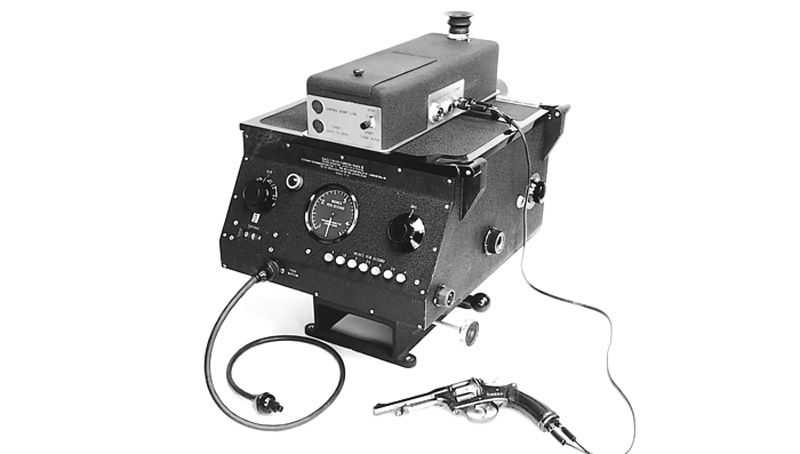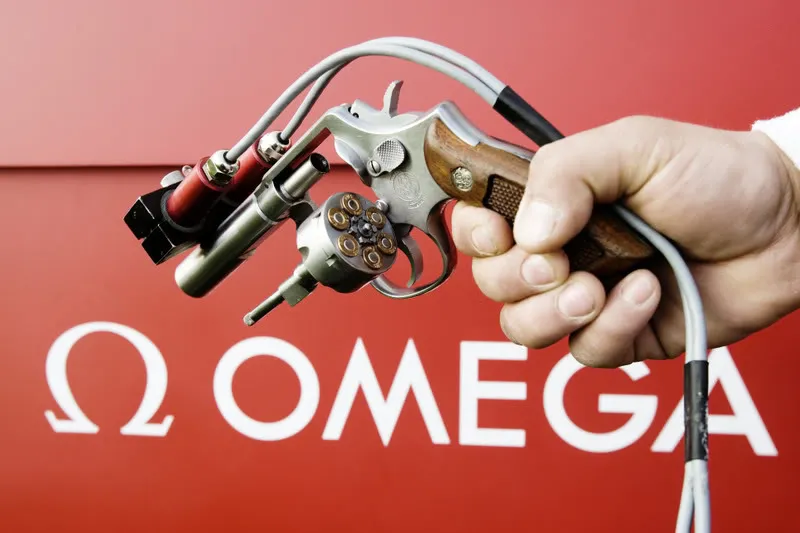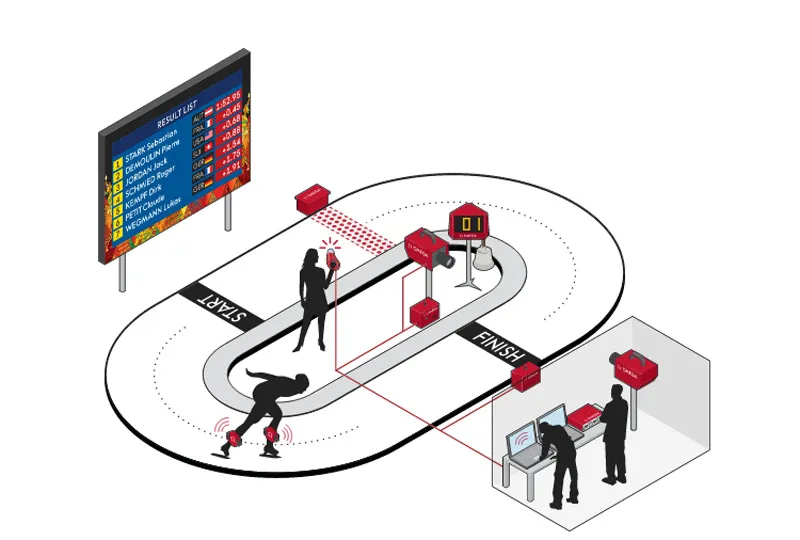The Timekeeping Tech that Keeps the Olympics Fair
Modern starting pistols are more Buck Rogers than Dirty Harry
:focal(831x300:832x301)/https://tf-cmsv2-smithsonianmag-media.s3.amazonaws.com/filer/4d/49/4d49d9e2-f9f2-4f40-96dd-ce28c4ef4329/olympics-starter-gun.jpg)
“On your marks, get set, Go!” might work to start a race on the playground but in the highest-stakes world of the Olympic games, where every thousandth of a second counts, even a gunshot isn’t fast enough to accurately and fairly start a race. Tasked with the job of ensuring that the the world's greatest atheletes are indeed the world's greatest is watchmaker OMEGA, who for the 26th time, is the official timekeeper for the XXII Winter Games. Under their, uh, watch, starting pistols and stopwatches have gone the way of togas and sandals.

Traditionally, starting pistols have taken the shape of revolvers and fire specially designed blanks that release a plume of smoke to visually signify the start of the race. Since the 1948 Olympics, these guns have been attached to electronic starting systems, beginning with OMEGA's “Magic Eye” timekeeping device, which projects a beam of light across the finish line that, when broken by an athlete, triggers the timers and was accurate to the nearest one-thousandth of a second.

But there are some problems with starting a race with a literal bang. Most notably, fairness: the gunshot is heard by the nearest athlete, giving them an unfair advantage of a fraction of a fraction of second - a difference that matters for today's super athletes. This problem was first addressed by installing speakers into starting blocks that would play the sound of the gunshot at the same time for every racer, but there was still a slight advantage--a startle response--that comes with proximity to the real gunshot. Without any actual gun fire, the new system eliminates any possible advantage at the starting block.
But in the wake of increased security concerns, starting pistols came under further scrutiny. Not only were they difficult to travel with, they could be used by criminals for intimidation - or worse. They’re easier to obtain, don't have to be licensed, and can be converted to fire actual bullets. Regulations have been introduced to decrease some of these dangers, such as the 2006 British law mandating that all starting pistols be painted to resemble toy guns, but in 2010 OMEGA introduced a new solution that solves all these problems: a gun that isn’t a gun. The Vancouver Olympic Games saw the first use of a new, electronic starting pistol that looks more like something from Buck Rogers than Dirty Harry (see top image). In 2012, it became the standard way to start a race.

When its trigger is pulled, the electronic starting “gun” does three things simultaneously: a light flashes, a pulse is sent to the electronic starting device, and a recording of a gunshot plays. I’m reminded of my friend’s kid who recently asked why his phone makes a “clicking sound” when he takes a photo. The sound is, of course, a digital recreation of the mechanical shutter used by ye old film cameras. It’s a type of audio skeuomorphism. These digital gunshots are example the same thing. It’s tradition. But it's also a signifier. It’s how we know the race has begun. But really, any noise could be used to start a race - a duck quack, a doorbell, or a David Bowie lyric (“on your marks, get set, LET’S DANCE!”).
From what I can tell, no one seems to be sure when exactly we began using pistols to start a race (try googling any combination of “starter,” “gun,” and “race” and the results will be diverse to say the least) but the tradition dates back at least to the cowboy horse races of the early 19th century. As for the ancient Greeks, they didn't begin their races with the launch of spear or the blare of a horn but with a system of ropes that some scholars believe derived from the catapult. One cord was pulled across the ancient starting line at waist-level and another at the knees; when the cords were dropped the race began. This ancient starting system might actually be fairer than a pistol shot, as it completey prevented atheltes from "jumping the gun" - or rope, as it were.
/https://tf-cmsv2-smithsonianmag-media.s3.amazonaws.com/accounts/headshot/Jimmy-Stamp-240.jpg)
/https://tf-cmsv2-smithsonianmag-media.s3.amazonaws.com/accounts/headshot/Jimmy-Stamp-240.jpg)